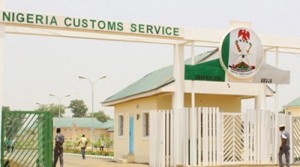 CSShippers Guide is the learning page of MMS Plus. Here we answer the five W’s and H of several issues in the shipping industry. This week we examine the ASYCUDA, read and find out more about the ASYCUDA.
CSShippers Guide is the learning page of MMS Plus. Here we answer the five W’s and H of several issues in the shipping industry. This week we examine the ASYCUDA, read and find out more about the ASYCUDA.
ASYCUDA is an integrated computer system for the management of Customs procedures and operations, developed and maintained by the United Nations Conference on Trade and Development (UNCTAD).

It is designed to harmonize and standardize Customs procedures in the Country, leading to better management and improved productivity in the Nigeria Customs Service. Founded in the early 80’s to automate the operations of Customs Administrations, the UNCTAD ASYCUDA Programme has become the leading media of Customs modernization worldwide. The ASYCUDA software is today the core component of comprehensive, Integrated Customs Information Systems in more than 80 countries.
The main objective of the program is to assist countries to achieve a global aim – Facilitation of Trade, by strengthening the Customs Administrations’ operational capacity to carry out their fiscal and control missions, through the implementation of modern and reliable systems.

The ASYCUDA Business Strategy follows the founders’ strategic objectives:

- ASYCUDA should assist Customs Administrations’ modernization and reforms, by supporting both facilitation of legitimate trade and efficiency of Customs clearance controls.
- ASYCUDA must implement harmonized codes, international standards, simplified procedures etc. The expected basic outputs are a uniform application of the Customs law and regulations, a better command on the collection of duties and taxes, and the availability of timely and accurate statistics.
- ASYCUDA should fit the requirements of all Customs operations worldwide: A unique, parameterised system, which brings a vast economy of scale, allowing UNCTAD to propose very cost-effective solutions. Country-specific requirements must be fulfilled provided they are not incompatible with objective 2. In addition, any specific enhancement of ASYCUDA must maintain the functional and technical coherence of the system.
- ASYCUDA is provided by UNCTAD at no cost. The implementation of the system is carried out through UNCTAD Technical Assistance projects, comprising general support activities, training, documentation and/or specific product developments on a cost-recovery [non profit] basis.
- ASYCUDA products should match highest quality standards of the industry. In order to do so, the ASYCUDA software will make use of latest reliable technologies available on the market.
The ECOWAS Community Computer Centre (ECOWAS/CCC) installed the ASYCUDA Ver. 2.7 in Nigeria from 1999 onwards through a project financed by the Nigerian Federal Government. The achievements of this three-year project are summarized below:
- Implementation of one single customs declaration model – SGD, in current use, replacing the previous 39 forms
- Use of international codes
The policy objectives of the system include:
- Improvement of Revenue generation,
- Facilitation of trade through speedy clearance,
- Supply of reliable and timely trade Statistics of planning purposes,
- Better management and control of Government finances
- Institutional strengthening of Customs through reform and modernization;
- Elimination of Customs fraud,
- Standardization of Forms and procedures,
- A platform and tools for a genuine implementation of e-Government.
- Enhancement of management and monitoring of Customs operations especially in the field, and
- International interchange of Customs data through the WCO/WTO.
Presently, the system is in operation in all the major sea and airports in the Country. Its major features include modules for the management of Manifests, Import and Export Licenses, Customs Declarations, Suspense Procedures, Selectivity, Accounting Functions, Control Files, Valuation, Examination, Tariff and Taxation, Statistics, Documentation, Utilities and Configuration. The system takes into account all International Standards, Codes and recommendations adopted by the International Standards Organization (ISO), the World Customs Organization (WCO) and the UNCTAD, in the field of trade facilitation.
 MMS PLUS NG – Maritime, Aviation, Business, Oil and Gas News Online Newspaper with coverage in Maritime, Oil and Gas, Aviation, Power and Energy as well as Financial News
MMS PLUS NG – Maritime, Aviation, Business, Oil and Gas News Online Newspaper with coverage in Maritime, Oil and Gas, Aviation, Power and Energy as well as Financial News









